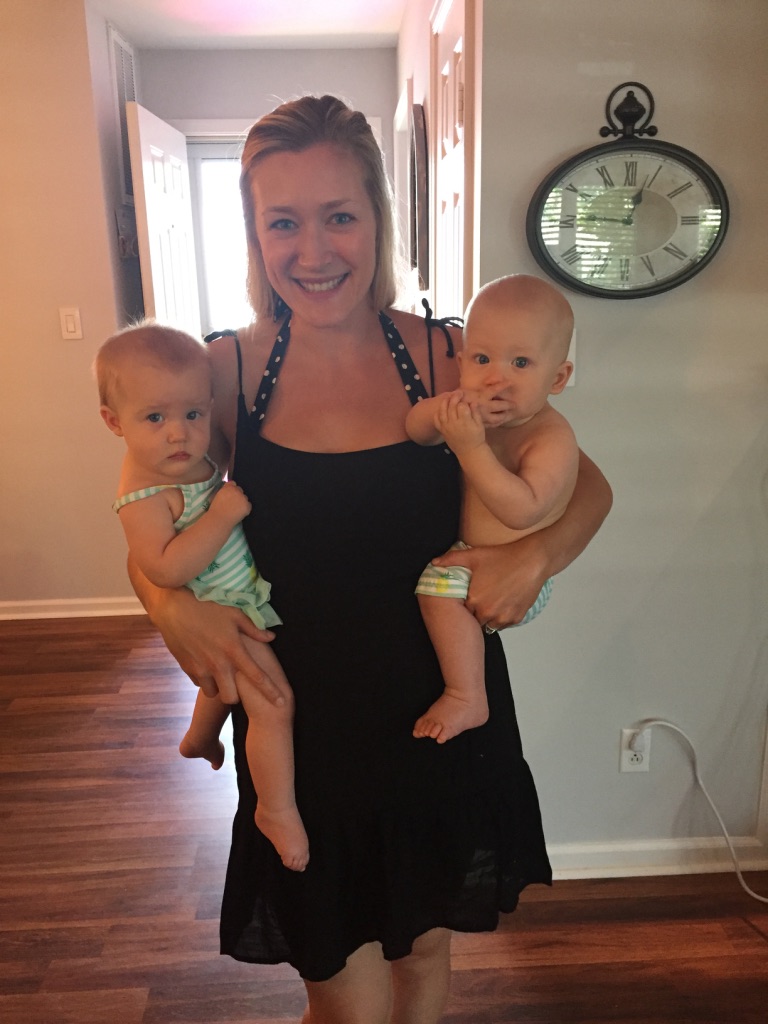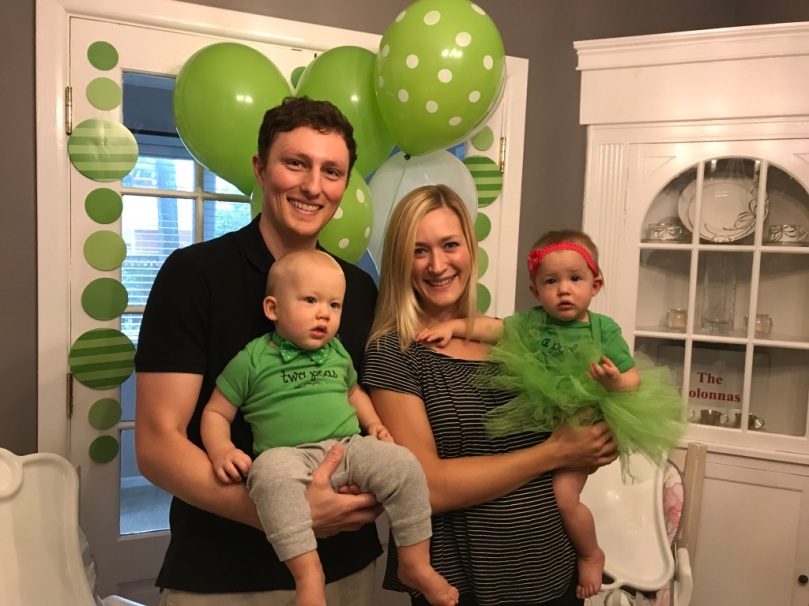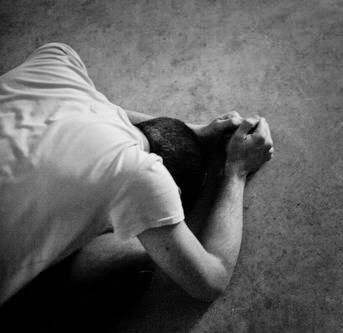Well. It’s been an entire year since I’ve updated this blog, though it surely hasn’t been an entire year I’ve gone without sharing. I’ve had the honor and gift of sharing the story of Benjamin and meeting others in their pain/encouraging one another to keep our eyes fixed on heavenly restoration and the kindness of Jesus through many different outlets over this past year, through different speaking events, my podcast Through the Lens, and my newfound online fitness coaching gig Move More Girls, where I help people view exercise and healthy living as a grace from God, not a burden or a drag, but a way to respect and honor the Creator while also helping us both look and feel great. I love having various ways to connect and share with others, to hear and learn from others, and just to live life alongside so many people, both locally and from a distance, as we journey through life. I’m staying very busy, between mothering 2.5 year old twins and running my different projects along with some church leadership opportunities, and I found myself in a crunch yesterday, wanting to process through some stuff on the grief front. Billy encouraged me to sit down during the twins’ nap time and just write. Here’s what came out–take it or leave it, but it’s where my heart was yesterday, and maybe it’ll meet you in your pain and/or point you to the beauty of the Gospel, which doesn’t fix all of our temporary problems or erase our deep pain, but does something greater–gives us hope in the middle of the pain, giving us promise of restoration to come, both fully in heaven, and in part here on earth.
—
Today my son would be 4 years old, but he’s dead.
Does that make you uncomfortable? For me to just put it that way? Shouldn’t I be the good Christian mom who only ever talks about how he’s living in heaven now and how he’s with Jesus and we’ll all be together one day? Because all of those are true, and there’s nothing I’m more grateful for. But it’s also true that Benjamin is dead. His medical records (which, by the way, were shipped to me in a box a foot high—no 10 week old baby should ever have a medical record that fills a box that big) state his date of birth followed by “expiration” and the date he died. Like what does that even mean? The word “expiration” should approximately never be used when speaking of a human being. Sometimes you just can’t shake the clinical sterility of the western world. Which, again, I’m grateful for, but when it’s your own kid they’re referring to you’re gonna hate it just a little bit.
So, my son is dead, it’s been 4 years, and I’m still coming to grips with it. One of the grief books I read early on encouraged parents to not use terms like “passed away” or “took his last breath” but to just call it like it is—death. I was surprised by that at first, but the more I thought about it the more it clicked with me—after all, I’d been saying phrases like “he passed away…” in attempts to put others at ease—it does sound a lot gentler. But the thing is it wasn’t gentle for us. His death was horrific and painful and left a lot of scars, and to simply say “he went to be with Jesus”—while true, completely glosses over the fact that we watched him suffer for 10 straight weeks, hungry, operated on like a lab rat (again, grateful, but this is my baby we’re talking about), and then ultimately to just…die.
I think I don’t mind flat out saying words like death, died, dying and just calling it like it is because it highlights the severity of what really happened here: someone, created in the image of God, has ceased to exist here on earth, and that’s a really difficult thing. The most difficult. And really, I don’t mind calling it what it is because, by God’s grace, I understand that physical death is not the same as spiritual death. For the Christian/those before the age of accountability, physical death is…physical. Temporary. Our souls are eternal and scripture tells us that to be absent from the body is to be present with the Lord. Cool! Okay, so that normalizes death and takes the sting away! We also know through scripture that one day, when Jesus returns and the new earth is created, we’ll receive new bodies, ones without disease or decay, to enjoy for eternity. And this is why, though I hate so much with every cell in my body having to say my baby son died, I love so much with every cell in my body knowing that his death, while painful and to be mourned, was physical—that he is now with the Lord and will receive a new body one day.
Today, and every day, I live in the tension between respecting and mourning and crying and grieving that we should be celebrating his 4thbirthday here on earth, and yet also rejoicing and hoping and overcome with gladness that my baby son was chosen to go before us decaying here on earth and has the honor of now being fully in the presence of Jesus. How does that play out tangibly? Honestly, it depends. Today, on his 4thbirthday, I wish I could tell you I’ve spent the day reminiscing and looking at photos and videos and hugging my children who are here tighter with such a grounded perspective on what really matters.
 Instead? I was in a sour mood headed to church on Easter Sunday, not wanting to see anybody, not wanting to lift my voice in praise, and generally spent the morning being incredibly short-fused with my 2 and a half year old twins, majorly stressing over potty training struggles and wondering if anyone even likes me. Add in a healthy dose of feeling extra guilty about it all because today of all days I should be utterly grateful for every single cry that comes out of my child’s mouth because I would give anything to be able to hear Benjamin again, and instead I just keep butting up against motherhood and fighting sanctification and just really wanting to escape from all of it but being so very trapped in it all—and yet at the end of the day, there’s nowhere else I’d rather be. But motherhood has me boxed in, and there are plenty more moments than I’d care to admit where I just really, really don’t feel cut out for this stuff anymore.
Instead? I was in a sour mood headed to church on Easter Sunday, not wanting to see anybody, not wanting to lift my voice in praise, and generally spent the morning being incredibly short-fused with my 2 and a half year old twins, majorly stressing over potty training struggles and wondering if anyone even likes me. Add in a healthy dose of feeling extra guilty about it all because today of all days I should be utterly grateful for every single cry that comes out of my child’s mouth because I would give anything to be able to hear Benjamin again, and instead I just keep butting up against motherhood and fighting sanctification and just really wanting to escape from all of it but being so very trapped in it all—and yet at the end of the day, there’s nowhere else I’d rather be. But motherhood has me boxed in, and there are plenty more moments than I’d care to admit where I just really, really don’t feel cut out for this stuff anymore.
Many days, rather than keeping my eyes lifted to the heavens with an eternal perspective, my gaze is down at the rock hard soil, hand upon the plow, digging and digging and getting nowhere. These are the days—the moments every day—where my own self is death, died, dying. He’s bringing death to my flesh—my sinful nature that desires comfort and control and predictability and ease more than I desire to be transformed more into His likeness. It’s His kindness that continues to break me down, softening the rock hard soil of my heart, molding me into something new. It’s His kindness, yet it’s far from niceness—a nice God wouldn’t have allowed His own Son to die a painful death. But God is not nice. He’s kind, and that kindness, as scripture says, leads us to repentance—to change directions and go the other way, away from our fleshly sinful nature and stumbling toward the cross. So that’s where I am today, on Benjamin’s would-be 4thbirthday. Feeling the pain of fleshly death, not glossing over any of the decay but calling it what it is—for me, sin, bitterness, anger, pride, selfishness, doubt, fear—and somehow stumbling toward the cross anyway, knowing that‘s the only link to true, eternal hope—the hope Benjamin is already experiencing. I pray it will continue to shape and change how I play it all out on earth, because I of all people know just how short this chance we get here is, and how precious it all really is—not eternal, yet with eternal implications. May He be glorified in the battle we face against the world to keep our eyes fixed on eternity, allowing us to glory in the hope of the restoration to come as well as the glimpses we get of it here on earth. For now we see in part, but soon we will see in full.




















































